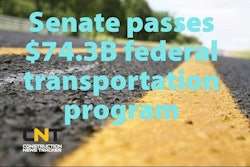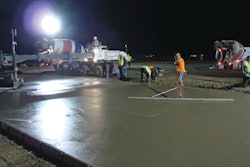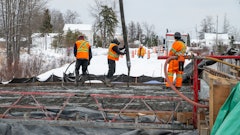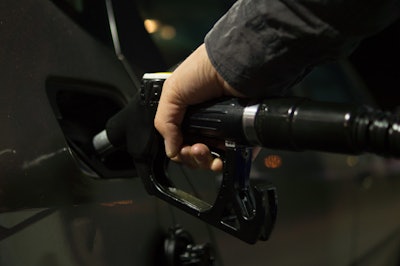
For more than 25 years, the Federal government has let the Highway Trust Fund, the source of money for Federal infrastructure projects, lose it's purchasing power. That's because the gas tax has been stuck at 18.4 cents per gallon for gasoline and 24.4 cents for diesel fuel since 1993.
While construction costs have increased 125% since 2003, funding has not. Instead of waiting for Washington to get it together, states have taken it upon themselves to fund their own infrastructure projects. Since 2013, 31 states and the District of Columbia have enacted legislation that will increase or may increase overall state gas taxes. However, passing a gas tax increase is not an easy task, and even states that have done it successfully are finding they still don't have enough money to pay for the projects they need done.
Read Next: What is the Highway Trust Fund & Why is it Going Broke?
South Carolina is just one example. In 2017, it passed a 12-cent per gallon gas tax increase which was less than what was initially proposed but a compromise to get the legislation passed. Legislators were warned when they passed the 2017 compromise, the first increase in 30 years, that the 12-cents per gallon hike and other vehicle fees weren’t enough to fix the state’s entire road system, the nation’s fourth largest, and they are now realizing that was true.
A Senate panel has now been created to explore how to step up widening projects on the worst stretches of congestion, potentially sparking another years-long debate over road funding.
“We can’t wait until 2040 or 2050 to deal with this,” Senate Minority Leader Nikki Setzler, the panel’s co-chairman, said. “We as a state have got to determine how we address the catastrophic needs we have now, or we’ll be left behind the rest of the Southeast. We’ve got to try to figure out how do we move faster. ... I don’t think people realize the magnitude or the time it takes to address it.”
The problem is that critical projects to reduce congestion are being delayed due to lack of funding. The state is now considering tolling certain sections of its roads in order to make more money in the short term. The panel will also investigate other funding mechanisms as well.
Other States Have Similar Challenges
In the United States, state governments do bear much of the responsibility for the transportation systems within their borders. States own and maintain transportation assets, plan and build new infrastructure, manage billions of Federal and state dollars each year, and collaborate with and support local governments. In recent years however, states have faced greater challenges in meeting these obligations than ever before.
Virginia is just one other state joining South Carolina as it is also running short on taxes being collected to pay for much needed maintenance on roads across the state, and higher efficiency vehicles are mostly to blame. While people are driving more miles, their cars are getting better mileage and tax revenue from fuel sales is expected to keep dropping over the coming decades.
The good news is there are plenty of funding mechanisms to choose from as states have now deployed over 54 different ways to raise money for infrastructure 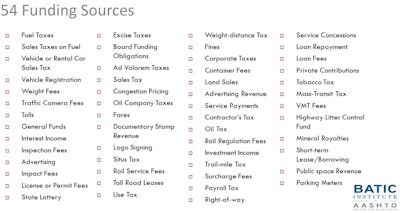
One funding mechanism states are investigating due to more efficient vehicles is an alternative fuel vehicle registration fee. Twenty-six states currently have these fees and another six are investigating this legislation in 2019. States are also increasing traditional vehicle registration fees to help pay for infrastructure projects.
Read Next: Nineteen States Raise Revenue for Roads in First Half of 2019
Another funding mechanism gaining ground is a road use charge (RUC). These fees ensure that all vehicles, including trucks, contribute their fair share of infrastructure costs and also combat the long-term sustainability issues with the gas tax. Oregon has completed its pilot program for the RUC program and rough legislation is in place for Utah and Washington to begin these programs as well.
Like South Carolina, states are also considering tolling to raise money for roads. New York and Washington have passed tolling legislation in 2019 while Oregon and Wyoming are still considering it.
A Federal Increase Still Needed
Even with these alternative funding mechanisms, motor fuel taxes still remain the most reliable transportation investment method. States are trying to do it on their own, but they are still unable to foot the bill. Federal legislation needs to be passed in order for our infrastructure to continue to move forward.
In May 2019, Rep. Earl Blumenauer (D-OR), introduced the Rebuild America Act of 2019, which would incrementally increase the federal tax on gasoline and diesel fuel by five cents a year over five years, index those taxes to inflation, and “establish Congressional intention” to replace those taxes with “a more equitable, stable source of funding” within 10 years.
“The gas tax was last raised more than 25 years ago, which means we are paying for our 2019 infrastructure needs with 1993 dollars. That is unacceptable,” Blumenauer, a longtime member of the House of Representatives Committee on Ways and Means, said in a statement.
Read Next: Five Ways Congress Can Fix The Highway Trust Fund
“Our nation’s infrastructure is falling apart as we fall behind our global competitors,” he argued. “The cost of underinvestment falls especially hard on working families and low-income individuals who can’t afford the cost of a blown tire or lost wages due to congestion. It is past time that we get real about funding our infrastructure needs, we can’t afford inaction any longer.”
Rep. Blumenauer added that the United States “faces the largest infrastructure funding gap in the world,” with surface transportation having the greatest being, which the American Society of Civil Engineers estimates needs more than $1.1 trillion of investment by 2025. Meanwhile, a 25-cent increase in the federal fuel – which would cost the average driver less than $3 a week – would contribute nearly $400 billion toward upgrading roads, bridges, and transit systems, he explained.
Our legislators need to know this is a problem. Contact them today and plan to meet with your congressional representatives to advocate for infrastructure needs, which includes a funding bill or sustainable infrastructure funding mechanism.





